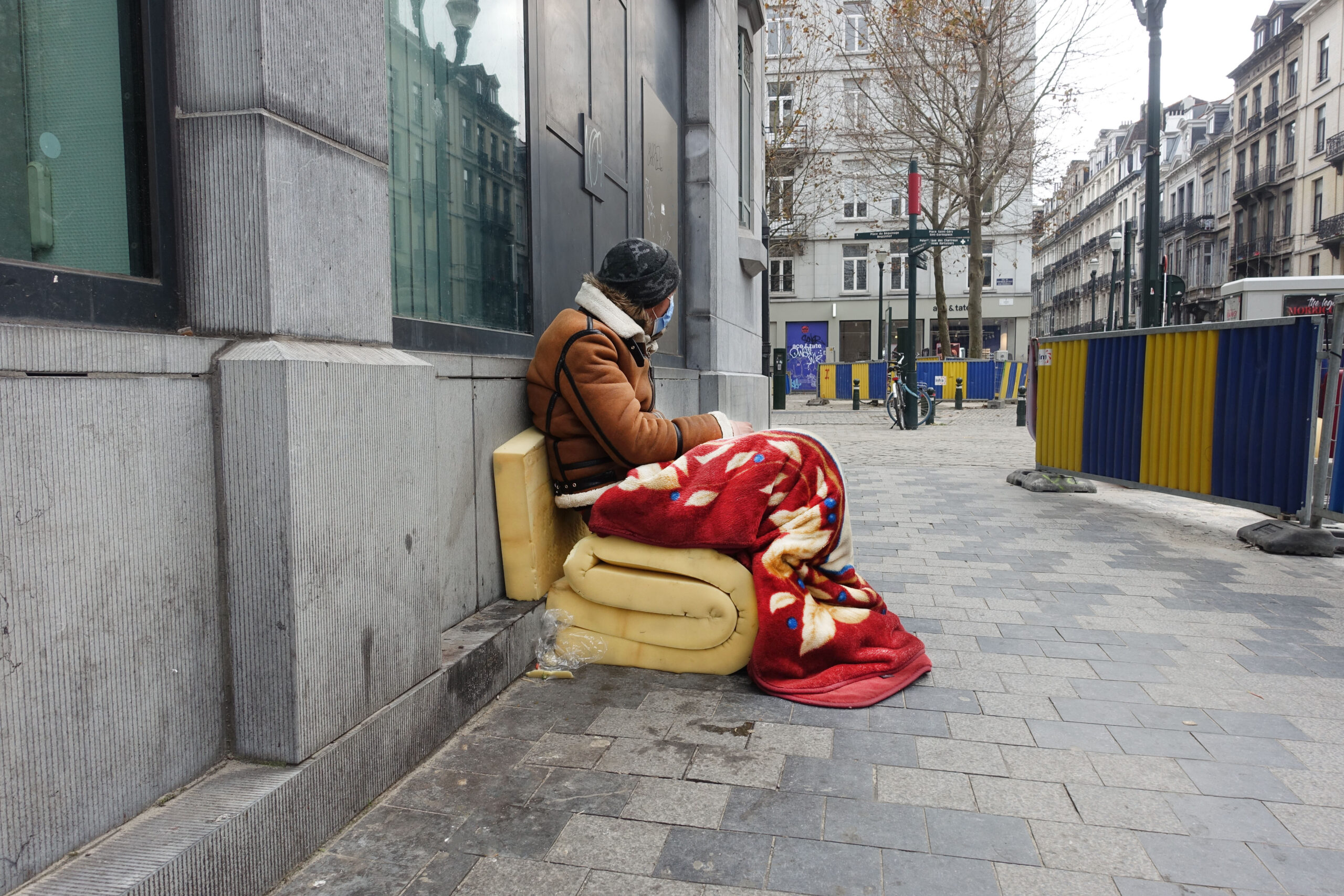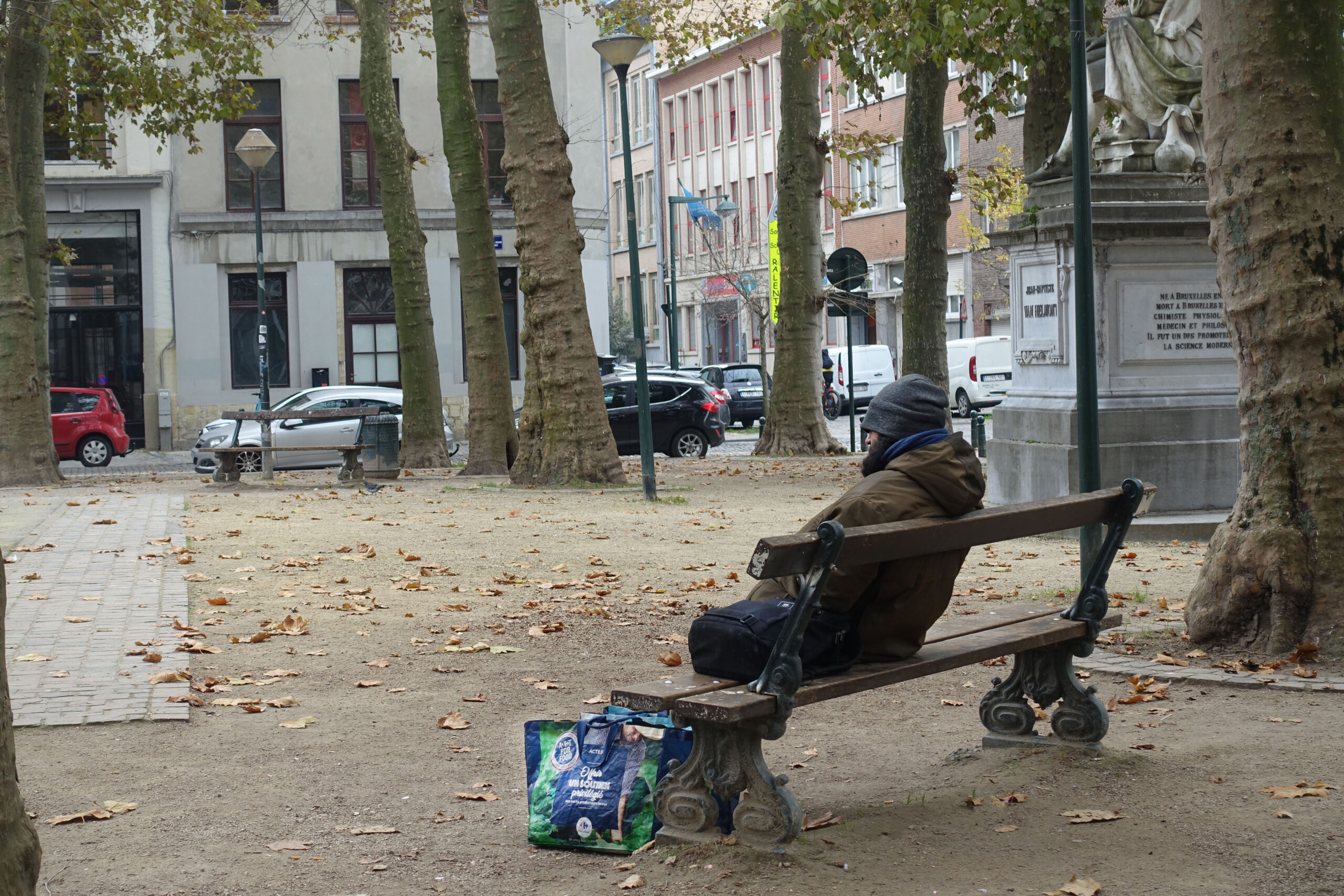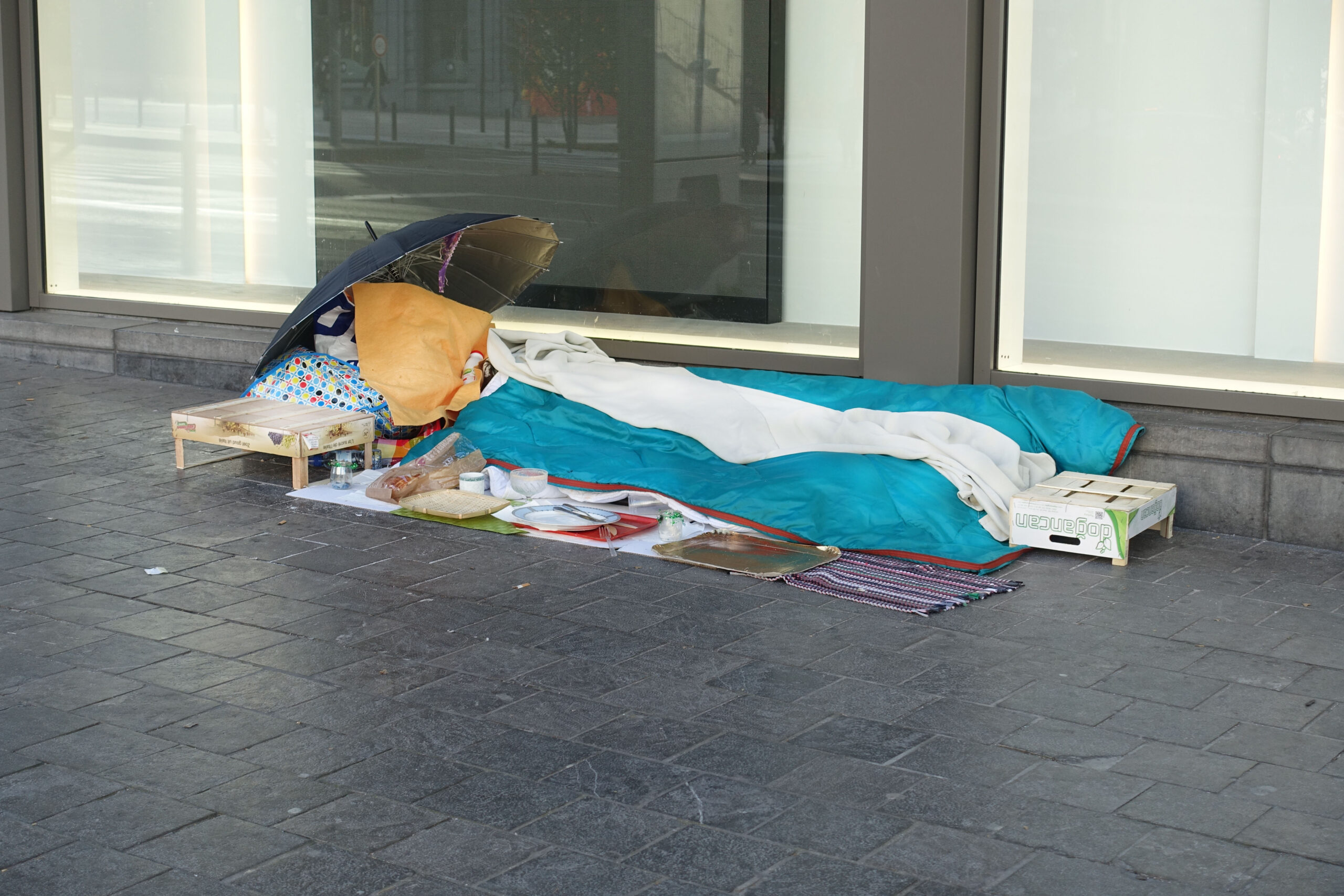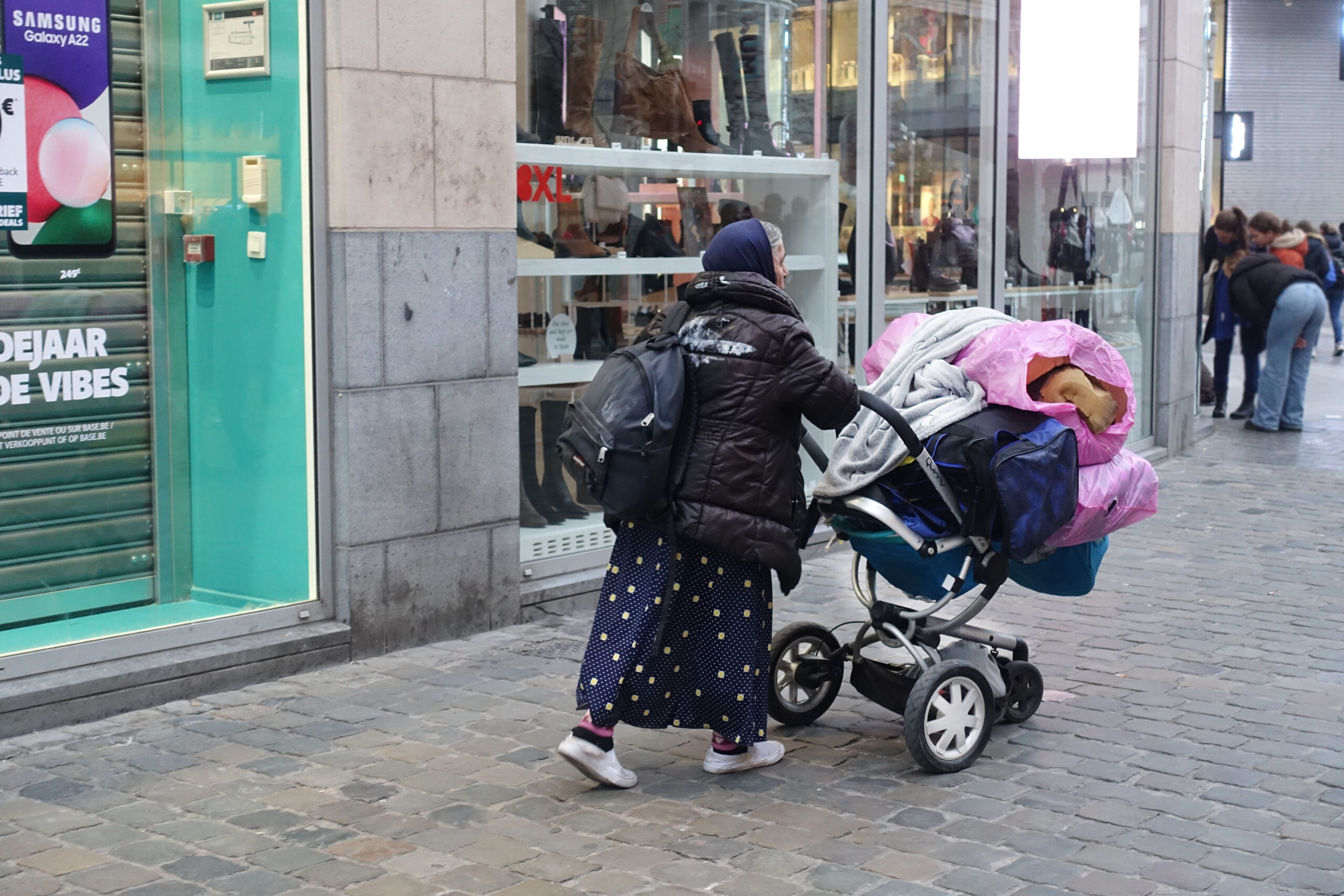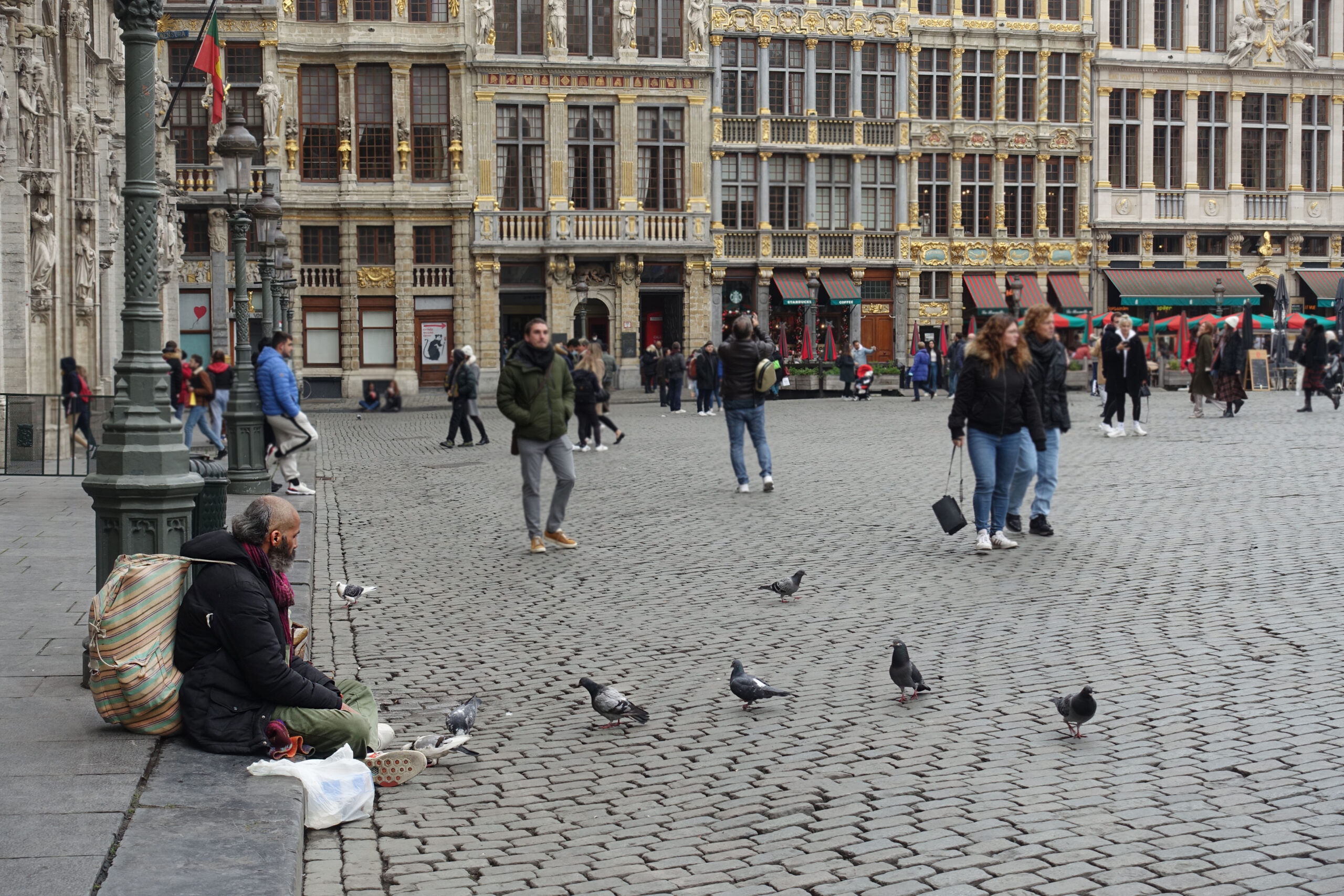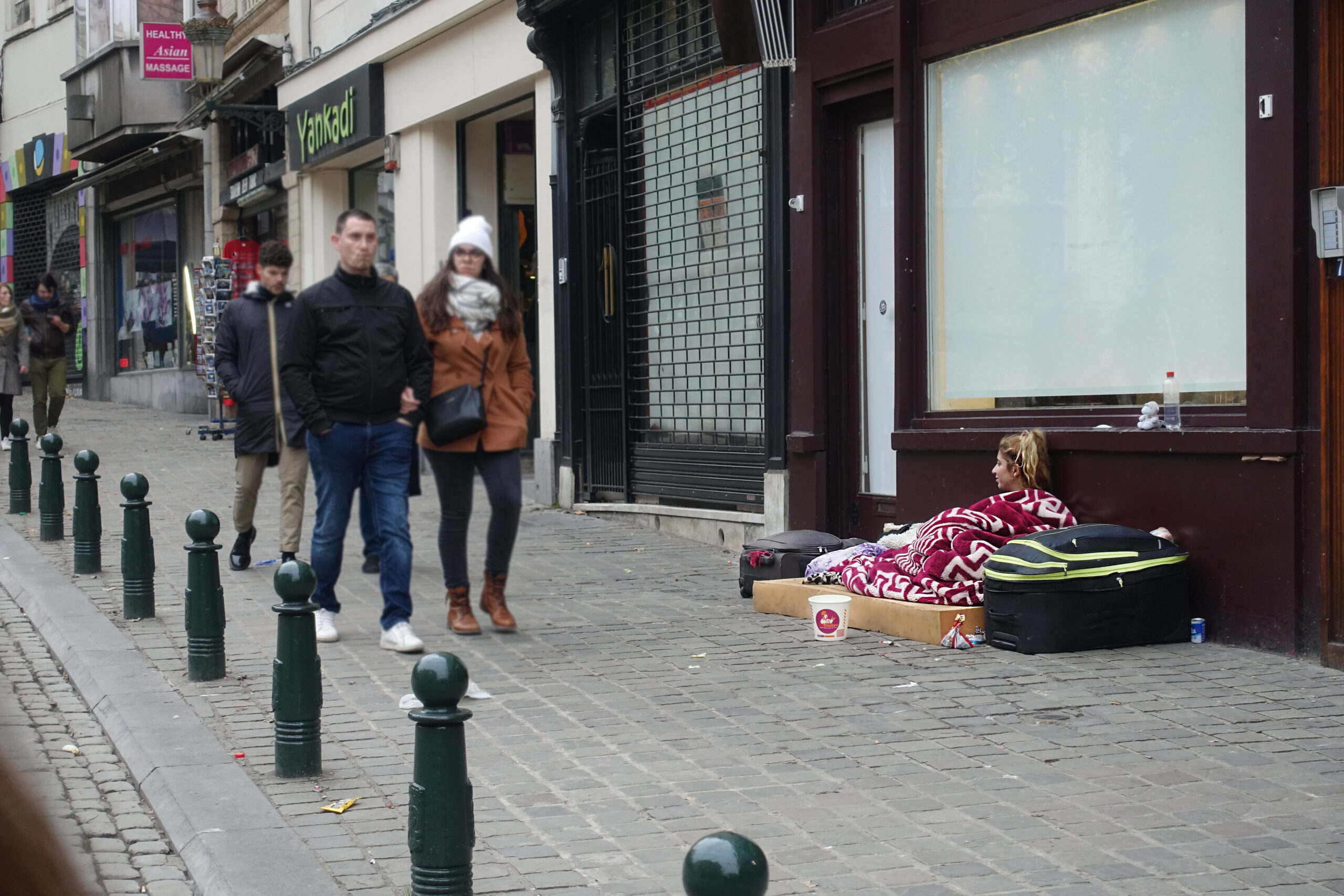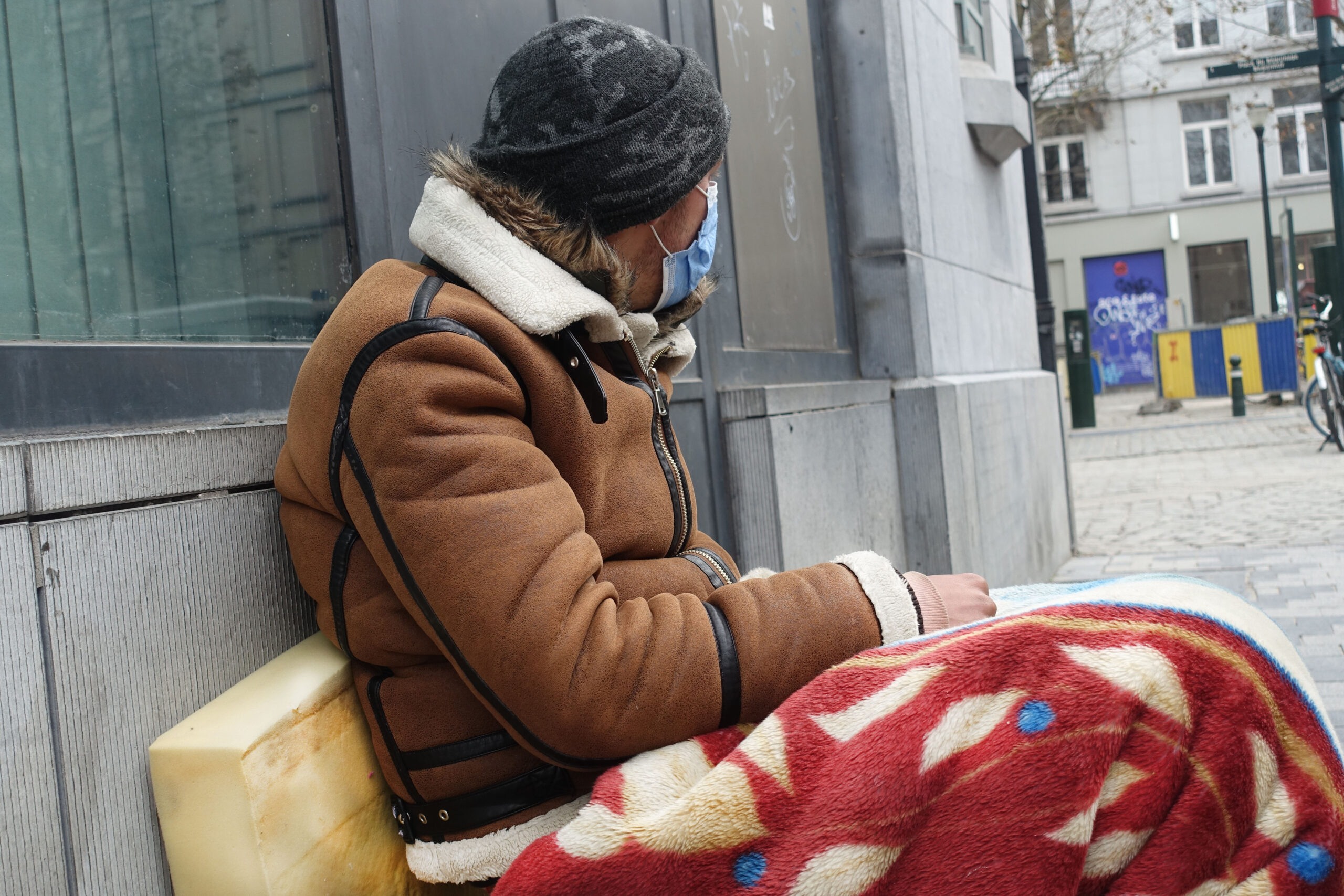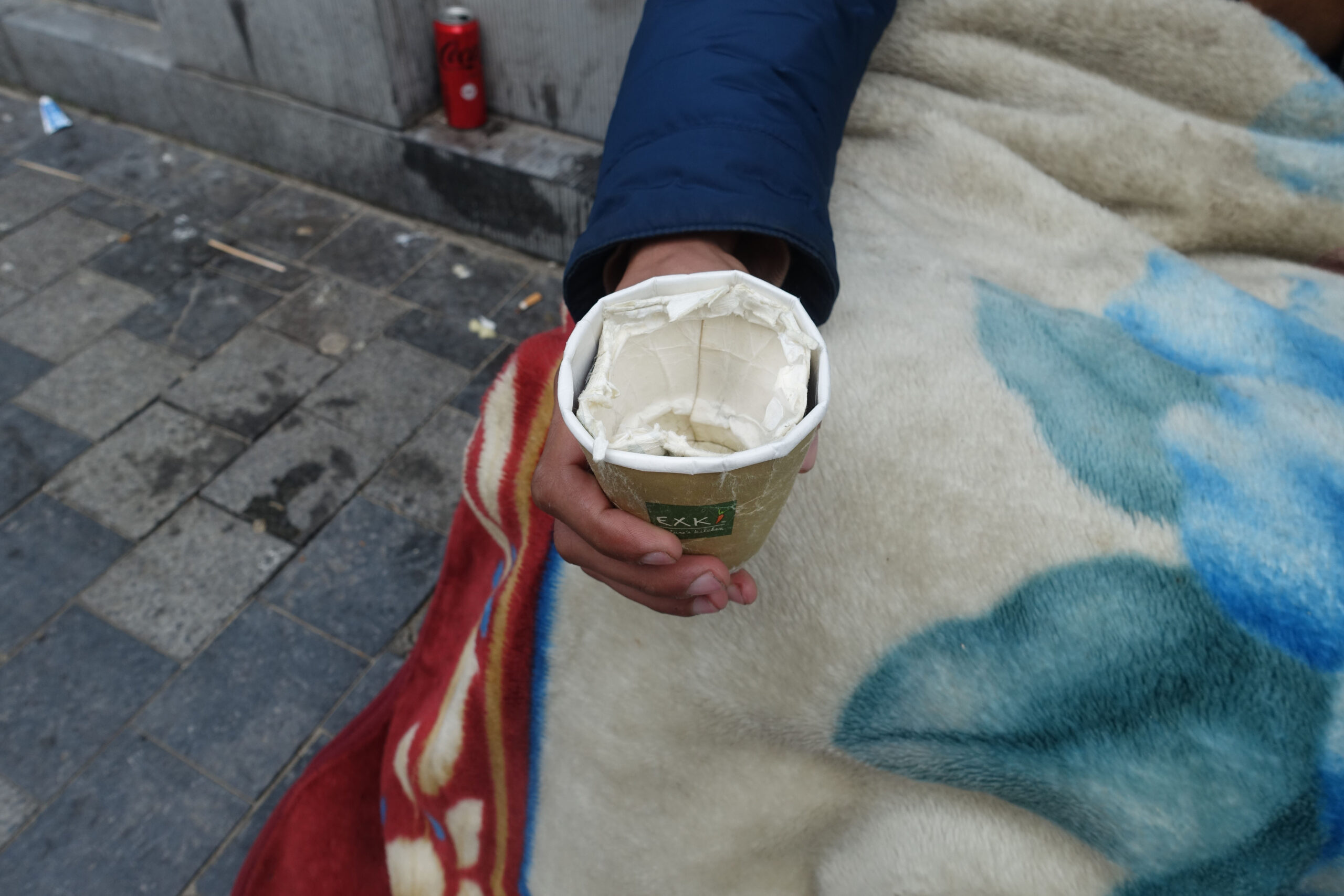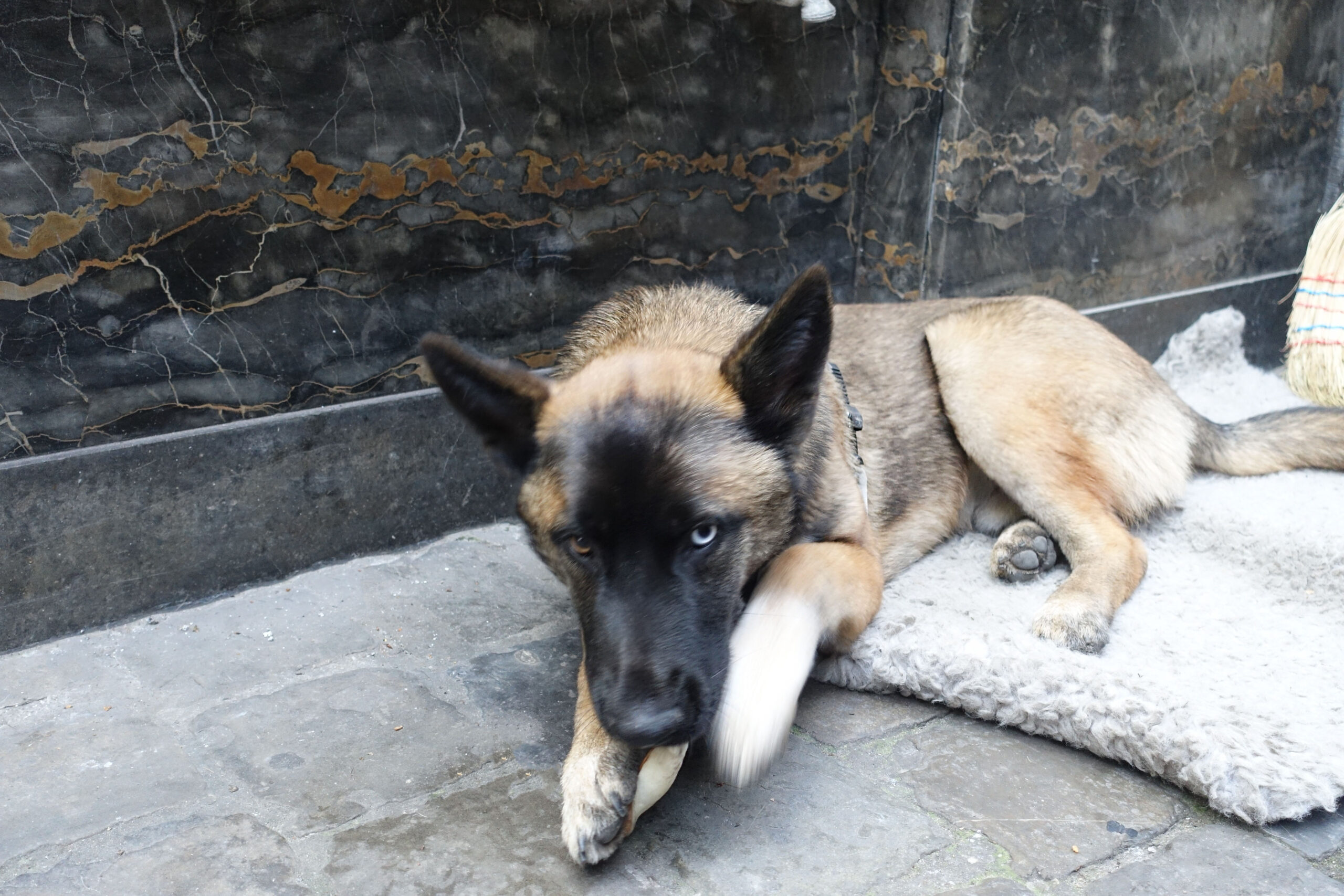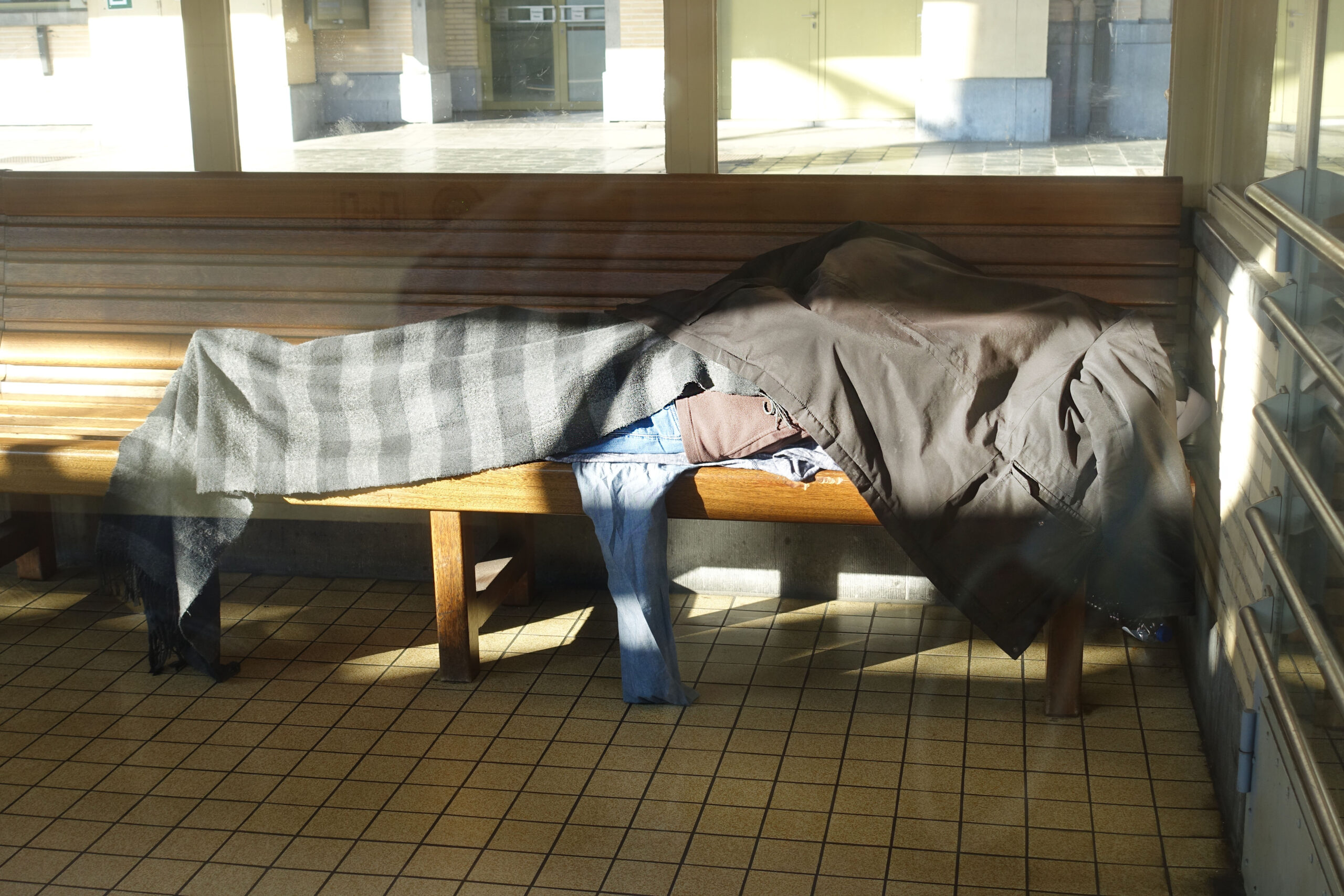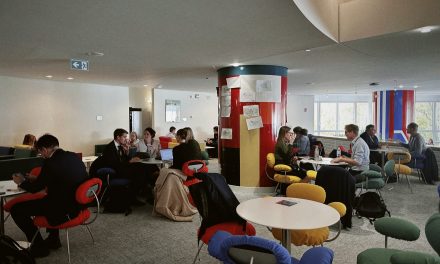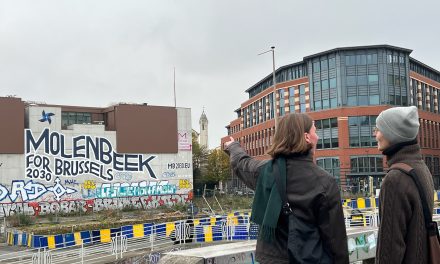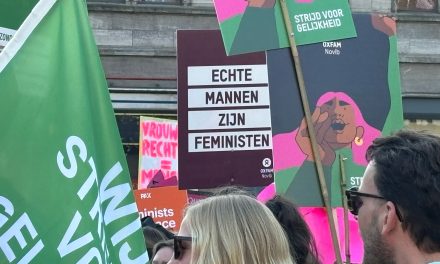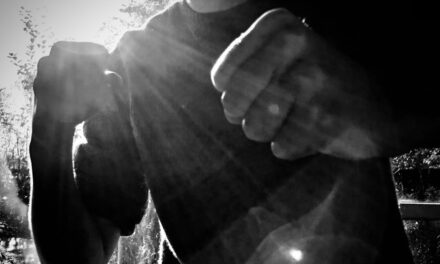Brussels, a city significantly affected by homelessness. It’s common to walk around the city and meet poor people on almost every street corner, begging for few cents. A woman, a man, a minor and sometimes even an entire family all sitting on the cold floor waiting for a small gesture from passers-by. A sad situation, and yet, so real.
Some figures
Bruss’help, a non-profit organization who conducted a homeless census study over 12 years, states that the number of homeless people has tripled in the last 12 years. Moreover, between 2018 and 2020, there has been a 27,7% increase (Graph Bruss’Help). A situation that is even more worrying since the people, who do not have their papers in order and therefore cannot apply for asylum, are not included in these figures. In 2021, Bruss’help has relied on the structuring of aids and devices. In total, there are 2,632 emergency and integration places for homeless people.
A welcome center among many others
Pierre d’Angle is a day and night shelter based in the center of Brussels. During the day, homeless people come via partner associations, and they can benefit from a nap service, a shower, something to eat and even participate in activities. Olivier Van Begin, the social worker and educator explains: “These activities are very important for our users because most of them are tired and stressed so it allows them to take their mind off things”. Unfortunately, the places in this association are limited and therefore valuable. Before, they could accommodate 48 people, but now because of the covid situation, they can only accept 27 people. Van Begin said: “Here, everything is free. We accept everyone except minors. To be the most equal to all, we proceed to a random draw. There were times when we had to turn away 50-60 people. Those who were refused often found it difficult to accept and sometimes reacted aggressively”.
Pierre d’Angle association takes care of two different types of users. The first type of people is those who are in order on the Belgian territory, but they don’t have a home. They’re more privileged as they are entitled to financial support from the CPAS, “center public of social action”. The second type is a bit more complex since they’re undocumented migrants and are not entitled to any help except medical help. Van Begin explains: “We have a lot of users who come from the Maghreb and are therefore Tunisian, Moroccan and Algerian”. He adds: “Our main goal is to help them find a stable life and even get them out of the street. Unfortunately, many of them are undocumented so we can’t do anything for them”. This association is above all very interesting on a human level. Van Begin ends his interview by saying: “Of course, working at Pierre d’Angle is not all 100% happiness but I managed to find my place and it helps me to feel good in my life”.
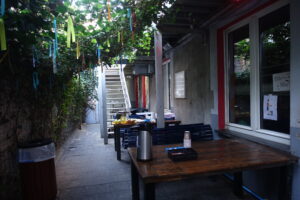
The inner courtyard of the non-profit organization Pierre d’Angle where the users meet.
On-site assistance
Samusocial is a free emergency aid service that provides accommodation, medical care, mobile teams, and psychosocial support for the homeless. They have more than 400 workers, project managers, educators, doctors, coordinators and many more. Ines who works in the communication unit explains: “Our mobile aid teams are on the streets of Brussels day and night. They go out to meet people who need help, but also people who have been reported”. She continues: “This day, more than 900 homeless people are followed up by the Samusocial through its different devices”. The association carries out all its missions thanks to its partners such as the Common Community Commission, the city, the CPAS of Brussels, the different municipalities and the hospitals. Ines says: “We’re not the only ones to take care of the homeless but we think the Samusocial is a key actor for these people”. Like the association Pierre d’Angle, the Samusocial sometimes faces problems with the homeless. But in the end, the workers are grateful to exchange with these destitute people. Ines explains: “The team works together towards a common goal: to relieve the person being helped and to support him/her towards solutions for leaving the street”.
An end note
The winter season is about to arrive. The shelters are doing their best to open additional spots even if the coronavirus is a major obstacle for them. Bruss’Help says: “We don’t have the exact figures to estimate the demand for accommodation of the homeless. However, it’s certain that this demand is strongly increasing in winter”. Fortunately, a good number of organizations and people are mobilizing to help these needy people.
